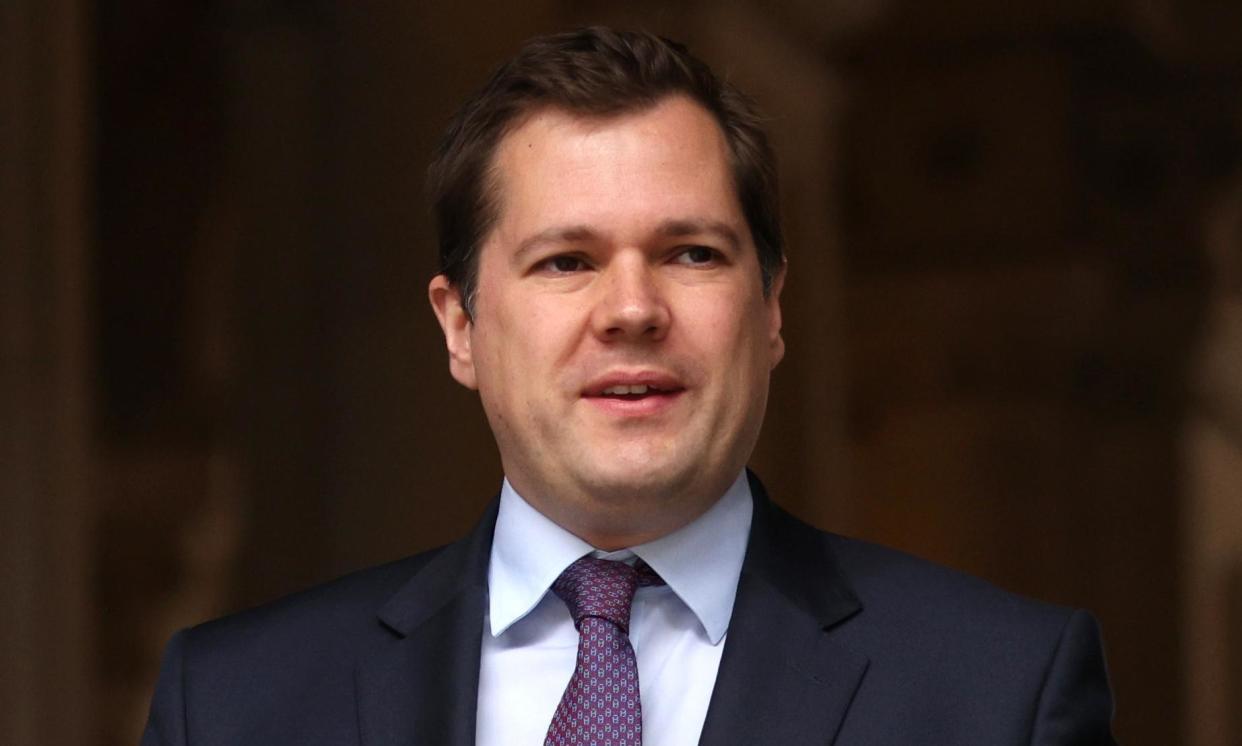Robert Jenrick calls for nationality data scheme to prevent UK ‘importing crime’

The nationality, visa and asylum status of people convicted of a criminal offence should be recorded to ensure the UK is not “importing crime”, the former immigration minister Robert Jenrick has said.
In an amendment to the government’s criminal justice bill, Jenrick proposed that recording this data could help strengthen immigration and visa policies.
Ministers would present a report to parliament each year detailing the nationality, visa status and asylum status of every person convicted in English and Welsh courts in the previous 12 months under the amendment.
Jenrick said this greater transparency would aid debates about legal and illegal immigration, which are “hindered by a lack of data”.
“We cannot hope to fix our immigration system without understanding the problem. The national debate on legal and illegal migration is hindered by a lack of data on the fiscal, economic and societal impacts of migration,” Jenrick told the Telegraph.
“There is mounting concern that the UK is importing crime, particularly violent crime, sexual assaults and drug production. We need to have transparency so the public knows what’s happening and policy can be formulated accordingly.”
Rishi Sunak has been facing mounting pressure to cut immigration figures in the UK and over his Rwanda bill.
On Friday, Jenrick told GB News that the prime minister “didn’t want to talk about” curbing legal immigration when he and the former home secretary Suella Braverman repeatedly tried to raise the issue – a claim contested by Downing Street sources.
The Conservative MP for Newark continued: “I think that the prime minister, like others, took the view that legal migration didn’t matter and that Brexit, if it was anything, was about taking back control but not bringing down the numbers.”
Sunak has previously promised to “do what is necessary” to bring net immigration down.
The government is introducing a range of restrictions in an effort to cut the number of people legally arriving in Britain, including a ban on overseas care workers bringing family dependants to the UK and increasing the salary threshold for skilled workers to £38,700.
Last year Jenrick resigned over the Rwanda bill after it was revealed the legislation did not allow the government to override the international laws that have stopped the government sending asylum seekers to central Africa.
He said it would not work and needed to go further in setting aside human rights law if it was to have a chance of getting the Rwanda scheme to work.
Jenrick’s new proposal has been backed by 25 MPs, including Sir Jacob Rees-Mogg and Robert Buckland.
He said the US and Denmark had a similar approach to tackling immigration as both countries had developed proposals to process asylum claims offshore.
“An open immigration system is creating serious problems in communities, but without data, we can’t have an informed debate,” he said.
“The Danes think similarly to us. They were the ones looking at third-country processing agreements. I don’t think anyone can suggest they are not compliant with international laws, yet they are rightly adopting a robust and fair approach.
“Anything that makes us more efficient in the way we process claims to sift out people whose presence would be a detriment to our country should be considered.”
Among MPs backing the plan are the Conservative former ministers Andrea Jenkyns, Sir Simon Clarke, Neil O’Brien, Jonathan Djanogly, Sir Desmond Swayne, Sarah Dines, Sir James Duddridge, Heather Wheeler and Caroline Johnson.


